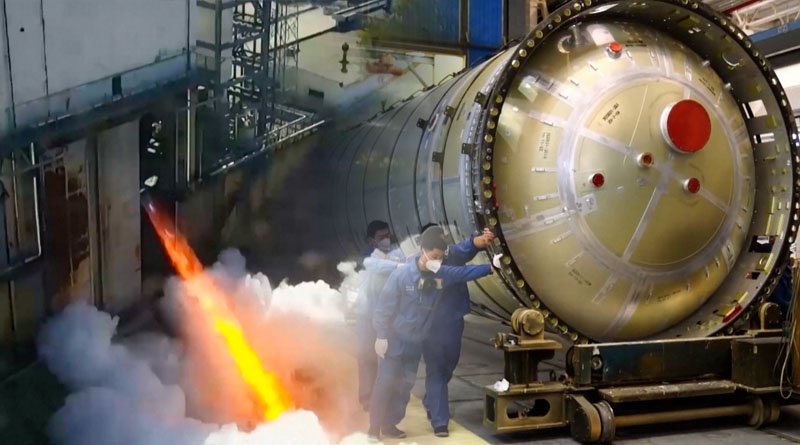Researchers concluded that the engine performance of kerosene rocket complied with the test requirements after interpreting the data.

A super 120-tonne high-thrust liquid oxygen and kerosene rocket engine has successfully completed a 50-second test run, according to the Xi’an Aerospace Propulsion Institute, a division of the 6th Academy of the China Aerospace Science and Technology Corporation (CASC).
Researchers concluded that the engine performance of kerosene rocket complied with the test requirements after interpreting the data. This will ensure China’s high density of over 60 space launch missions in 2023 when it is delivered for the Long March 7 rocket mission.
In its annual work report released on Tuesday, CASC, the principal contractor for the Chinese space programme, stated that it has more than 50 aerospace projects planned for 2023.
Ten spaceflights using its Kuaizhou-1A and Kuaizhou-11 solid-propellant rockets are also planned by China Aerospace Science and Industry Corp. (CASIC), another state-owned space company.
The Kuaizhou-1A and Kuaizhou-11 are Chinese solid-propellant rockets developed by the China Aerospace Science and Industry Corporation (CASIC). The Kuaizhou-1A is a small, low-cost rocket that was first launched in 2013 and has been used to launch a number of payloads into orbit.
The Kuaizhou-11 is a larger, more powerful rocket that was first launched in 2019. Both rockets are designed to be rapidly produced and launched, with the goal of providing a cost-effective means of accessing space for a variety of applications.
The Xi’an Aerospace Propulsion Institute (XAPI) is a research institute located in Xi’an, China. It is a division of the 6th Academy of the China Aerospace Science and Technology Corporation (CASC), which is a state-owned enterprise responsible for the development and production of spacecraft, launch vehicles, and related technologies in China.
XAPI conducts research and development in the field of rocket propulsion, with a focus on the design and testing of rocket engines. The institute is involved in a number of high-profile projects, including the development of engines for China’s manned space program and its lunar exploration efforts.